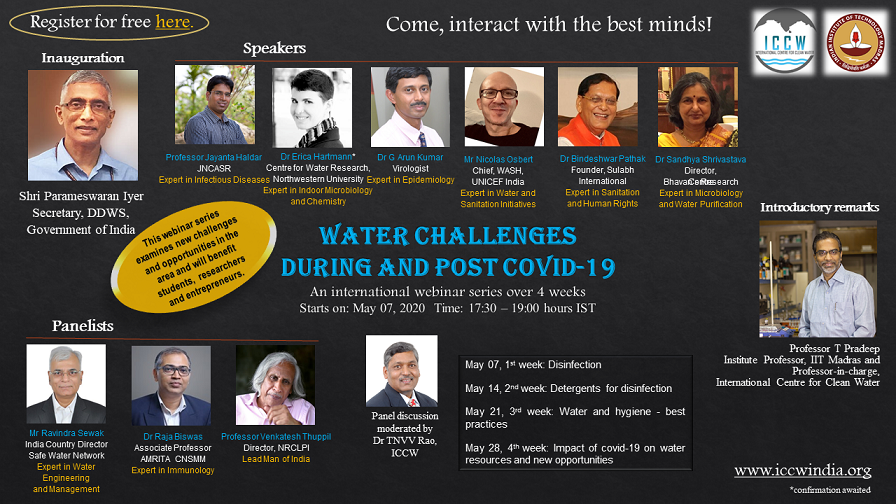Health
Building resilience of communities during and beyond Covid-19
Posted on 14 May, 2020 01:12 PMCovid-19 pandemic has unleashed multiple challenges in different geographies, especially for the vulnerable groups living in areas that already have existing issues of water and food security.

Water levels in major reservoirs maximum in last 13 years: CWC
Posted on 13 May, 2020 02:39 PMWater storage level 76 percent more than last year: CWC

Need to build inclusive cities in the post-pandemic world
Posted on 12 May, 2020 08:36 PMWhen migrants headed home after Covid-19 lockdown 1.0, Sarojini was suddenly caught off-guard. She decided against moving, after an initial urge to leave for her village in Samastipur, Bihar. Her two sons stay with her at Delhi, doing daily wage labour work, while she works as a domestic help.

Coping with Covid-19: Options before small and marginal farmers of rainfed regions
Posted on 09 May, 2020 03:11 PMThe global crisis due to Covid-19 has hit India after coursing through western Europe. India’s response to curtail the spread of the disease was quite decisive.

Will access to piped water ensure safe water in India?
Posted on 09 May, 2020 02:35 PMWhile Covid-19 has brought forth the need for better access to water for WASH practices to the forefront, how India plans to bring water at the doorstep through the Jal Jeevan Mission (JJM) continues to be a challenge. This is especially in the context of not only access but also quality of the available water.

Village institutions take a lead in Covid-19 response
Posted on 07 May, 2020 09:23 PMCovid-19 will have major implications in rural areas where the Foundation for Ecological Security (FES), a non-profit organisation has been working towards conservation of natural resources through collective action of local communities. Experience indicates that the complete lockdown to contain the spread of the disease has resulted in loss of rural incomes.

In conversation with Rohini Nilekani: Water, societal platform thinking and COVID-19 response
Posted on 06 May, 2020 03:28 PMListen to the interview here:

Transforming lives in the Covid-19 context: MGNREGS and its potential
Posted on 05 May, 2020 04:11 PMAs India continues to unravel the actual scale of economic impacts in a world infested by the dangerous Covid-19 virus, lingering images of daily wage labourers and migrant workers attempting a near impossible walk home have been etched in public consciousness.

Self sufficiency in the times of Covid-19
Posted on 02 May, 2020 11:26 AMReshamben, Manguben and Naseemben, strong women leaders of Vanita Shakti Mahila Sangathan and Ekta Mahila Sangathan, have always argued that government ration shops under the public distribution system should purchase all essential foodgrains from the local area, to the extent possible.







